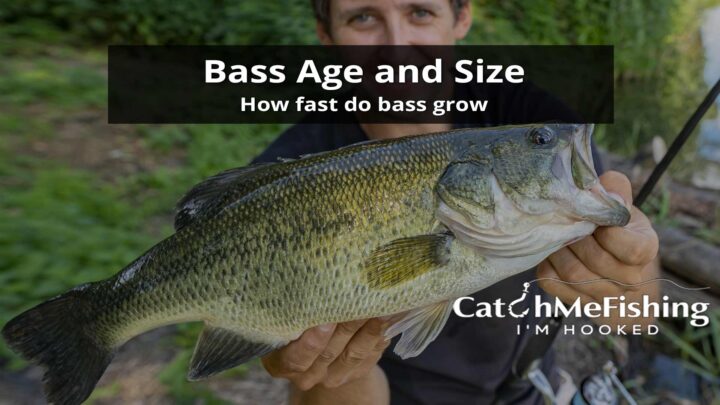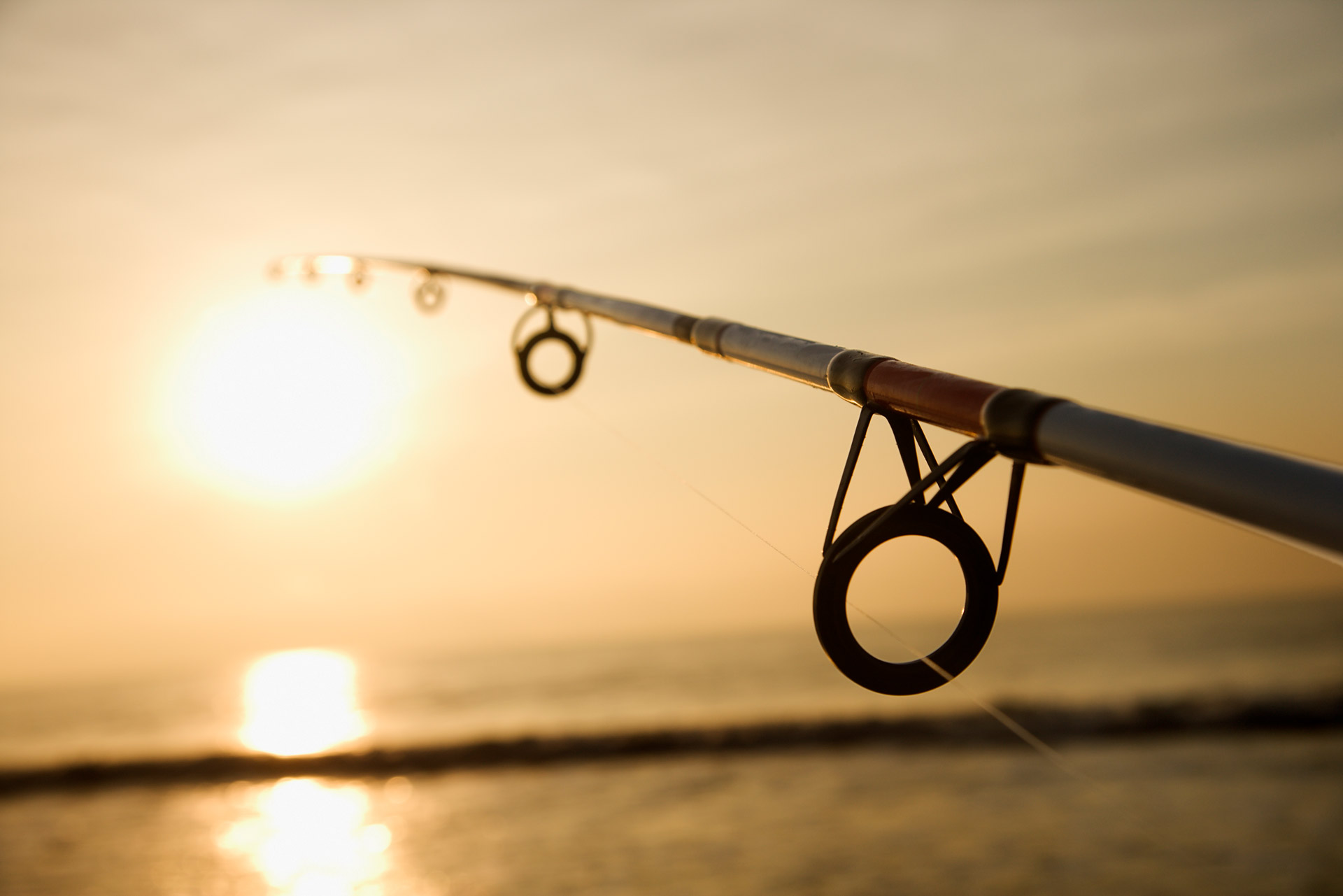How Fast Do Bass Grow? Bass Size in Relation to Their Age

Bass fishing is a sport that covers many different aspects. One of the most important things to know about bass is how long it takes them to grow and their size when fully grown.
The growth of largemouth bass is different depending on the food supply and the water conditions. They can grow up to 2 pounds in their first year if they have good conditions. But without good conditions, it is normal for them to grow up to less than half a pound.
Females usually are always bigger in size and weight than males.
In this article, I discuss how fast do bass grow as well as their age, gender, and size factors that you should consider while bass fishing.
How Fast Do Bass Grow?
Location and food supply significantly impact the speed that the bass will grow. But in general, bass will grow faster in the south and young, and the food supply is abundant.
Growing rates of largemouth bass vary from region to region, depending on water quality, food, and temperature.
Young Bass Growth Speed
Young bass are continually growing and developing, so it can be hard to say precisely how long they will be when fully grown! A lot depends on water temperatures and how long the growing season is.
On average, a one-year-old largemouth bass grows to about 2.5 to 8.5 inches long after the first year.
After a second year, a bass can grow up to 10 inches. Although, this is usually the length they hit after the 3rd year.
Bass growth speed in ponds
Bass tend to grow faster in ponds than in lakes. This is because, in ponds, many things are abundant, and the bass can get the food they need easier for better development.
This also depends on factors like the quality of the water and the food source.
Ponds can also warm up faster than lakes and raise the metabolism level of the bass for longer.
The bass will only grow to the size of their habitat. So if the bass are in a small pond, their maximum reached weight and length will be smaller than could have been reached in a larger pond or lake.
Pond fishing for bass can be good all year round because of this reason.
How Long do Bass Live?
Bass live longer the further north of the country they are. They can live up to 15 years but don't grow as big as their south-of-the-country counterparts.
Generally, whether a bass can survive will depend on different factors.
Factors from lake to lake and state to state are variables - so determining an exact number is nearly impossible.
The environment, temperature, and weather significantly impact how long bass live and their age and development rates.
How old is a 5-pound bass?
Depending on the species, a 5-pound bass can range from 4 to 15 years old.
Southern bass will be much younger than their more northern largemouth bass.
Factors such as longer growing seasons and warmer temperatures greatly affect the bass's growth rate.
How old is a 10-pound bass?
Big does not always mean the bass is old, especially for a Florida species bass.
One bass expert used a largemouth bass's earbones to find that a 10-pound bass was only four and a half years old.
Typically, a 10-pound bass takes around 9.5 to 11 years to grow. But many factors are involved. This average comes from a study in Florida of 800 largemouth bass.
Largemouth Bass Age and Size
Typically a largemouth bass is not called a trophy unless it's between 9 to 20 pounds. However, some anglers say the bass must be over 11 pounds before it's called a trophy.
Anything over 8 pounds is considered big, and hooking these sizes in a tournament will surely place you higher in the rankings.
But trophy bass can be smaller or larger depending on the water conditions. For example, when the food supply is low and temperatures are cool, they might only grow to around a maximum of 16 inches in length.
The average length of largemouth bass is 15 inches. The world record for the longest largemouth is 38 inches.
Largemouth bass grow bigger in the southern states due to the higher water temperatures and longer growing seasons. The four states, Georgia, Florida, Alabama, and Mississippi, have Largemouth bass as the state's fish.
Bass in Florida are in high water temperatures most of the year. As a result, they eat more and grow more due to a higher metabolism. This causes the bass to grow more rapidly and bigger in size.
Female largemouth bass are the ones that grow the biggest.
Males don't grow as big as females. They only grow to about 8 pounds.
The female bass need to be extra big to produce healthy eggs and baby fish during the spawning season.
Bass fishing is a sport that covers many different aspects. One of the most important things to know about bass is how long it takes them to grow and their size when they are fully grown.
The growth of largemouth bass is different depending on the food supply and the water conditions.
Florida Bass Strain
One of the most exciting aspects of bass is how there are many different strains. The Florida strain, for example, often grows much larger than other types and can weigh up to 20 pounds!
The Florida bass strain has been bred in many different freshwater systems throughout the southern parts of America, and it's known for its large size.
The high demand from fishermen created an artificial environment where they could get larger fish easily by releasing them into areas like ponds or lakes to increase their catch size.
Due to this, many lakes in the southern states now have bigger-sized trophy largemouth.
The Florida bass strain has been introduced to grow and increase the size of bass caught in freshwater systems all over the southern United States.
Final Thoughts
One of the most important things to know about bass is how long it takes them to grow and their size when they are fully grown.
The growth of largemouth basses varies due to food supply and water conditions.
In general, these fish take between nine and eleven years to grow fully. But, many factors play a role in the growth rate of bass.
Some anglers say the largemouth must be at least 11 pounds before it's called trophy-worthy.
Anything between eight to ten pounds is considered big if you're fishing in tournaments or other competitions for prizes.
Bass in the southern states typically grow faster and bigger but also have a lessened life span.
Choosing the correct rigs and lures will surely help you succeed in catching bass.
I wish you the best of luck in your bass fishing adventures.



